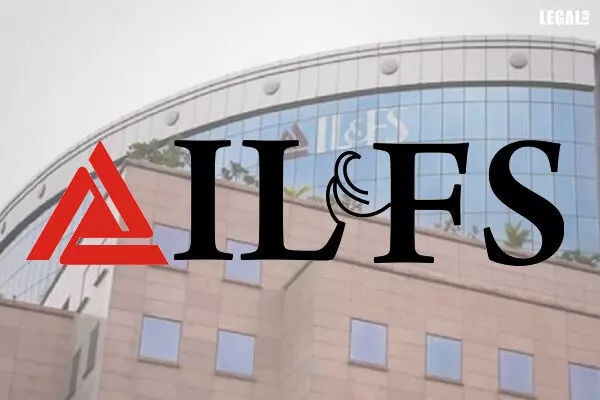- Home
- News
- Articles+
- Aerospace
- Artificial Intelligence
- Agriculture
- Alternate Dispute Resolution
- Arbitration & Mediation
- Banking and Finance
- Bankruptcy
- Book Review
- Bribery & Corruption
- Commercial Litigation
- Competition Law
- Conference Reports
- Consumer Products
- Contract
- Corporate Governance
- Corporate Law
- Covid-19
- Cryptocurrency
- Cybersecurity
- Data Protection
- Defence
- Digital Economy
- E-commerce
- Employment Law
- Energy and Natural Resources
- Entertainment and Sports Law
- Environmental Law
- Environmental, Social, and Governance
- Foreign Direct Investment
- Food and Beverage
- Gaming
- Health Care
- IBC Diaries
- In Focus
- Inclusion & Diversity
- Insurance Law
- Intellectual Property
- International Law
- IP & Tech Era
- Know the Law
- Labour Laws
- Law & Policy and Regulation
- Litigation
- Litigation Funding
- Manufacturing
- Mergers & Acquisitions
- NFTs
- Privacy
- Private Equity
- Project Finance
- Real Estate
- Risk and Compliance
- Student Corner
- Take On Board
- Tax
- Technology Media and Telecom
- Tributes
- Viewpoint
- Zoom In
- Law Firms
- In-House
- Rankings
- E-Magazine
- Legal Era TV
- Events
- Middle East
- Africa
- News
- Articles
- Aerospace
- Artificial Intelligence
- Agriculture
- Alternate Dispute Resolution
- Arbitration & Mediation
- Banking and Finance
- Bankruptcy
- Book Review
- Bribery & Corruption
- Commercial Litigation
- Competition Law
- Conference Reports
- Consumer Products
- Contract
- Corporate Governance
- Corporate Law
- Covid-19
- Cryptocurrency
- Cybersecurity
- Data Protection
- Defence
- Digital Economy
- E-commerce
- Employment Law
- Energy and Natural Resources
- Entertainment and Sports Law
- Environmental Law
- Environmental, Social, and Governance
- Foreign Direct Investment
- Food and Beverage
- Gaming
- Health Care
- IBC Diaries
- In Focus
- Inclusion & Diversity
- Insurance Law
- Intellectual Property
- International Law
- IP & Tech Era
- Know the Law
- Labour Laws
- Law & Policy and Regulation
- Litigation
- Litigation Funding
- Manufacturing
- Mergers & Acquisitions
- NFTs
- Privacy
- Private Equity
- Project Finance
- Real Estate
- Risk and Compliance
- Student Corner
- Take On Board
- Tax
- Technology Media and Telecom
- Tributes
- Viewpoint
- Zoom In
- Law Firms
- In-House
- Rankings
- E-Magazine
- Legal Era TV
- Events
- Middle East
- Africa
New board of IL&FS pleads NCLAT to Curb Public Sector Banks From Labelling It ‘Willful Defaulter’

New board of IL&FS pleads NCLAT to Curb Public Sector Banks From Labelling It ‘Willful Defaulter’
Accuses them of taking procedural action under the garb of the Reserve Bank of India guidelines
The newly appointed board of the debt-ridden Infrastructure Leasing & Financial Services (IL&FS) has urgently sought the intervention of the National Company Law Appellate Tribunal (NCLAT) to restrain 11 public sector lenders from initiating proceedings to declare the group companies as ‘willful defaulters.’
In its petition, IL&FS stated that it was aggrieved by the “blatant violation and disregard” of previous orders of the NCLAT by the banks. It accused the banks of taking procedural action under the garb of the Reserve Bank of India (RBI) guidelines and “harassing the directors” of the firms.
The banks are Central Bank of India, Bank of Baroda, Indian Bank, Canara Bank, Punjab National Bank, Indian Overseas Bank, State Bank of India, Bank of India, Jammu & Kashmir Bank, IDBI Bank and Union Bank of India.
IL&FS submitted that the banks were, “Issuing show-cause notices, calling for a personal hearing before the willful defaulter identification committee, threatening initiation of criminal proceedings and declaring IL&FS companies and their current directors as willful defaulters and issuing look-out circulars.”
It added, “All such coercive actions are attempts by the respondent banks to pressurize the IL&FS companies to directly or indirectly meet their debt demands without considering that the resolution of debts of all the creditors of the IL&FS companies is subjudice before this tribunal.”
The IL&FS pleaded that the banks be restrained from pursuing proceedings against “other IL&FS companies and/or their directors and/or officers appointed after October 2018 by the new board of the IL&FS.”
Furthermore, it made the RBI a party and requested the NCLAT to “pass an order directing respondent No.12 (RBI) to direct respondent No.1 to 11 (banks), restraining them from taking any coercive action against the applicants and other IL&FS companies.”
It also requested the NCLAT to direct the banks, “not to take any coercive action against the applicant and other IL&FS companies and/or their directors and/or officers” during the pendency of the hearing and the application’s final disposal.
The IL&FS stated that the banks were participating in the resolution process to get their debts addressed and these parallel coercive steps were not only “squarely in the teeth” of the orders passed by the NCLAT, but were the result of either a selective reading of such orders, or an “uncoordinated mechanical attempt” at purportedly complying with applicable guidelines of the RBI.



